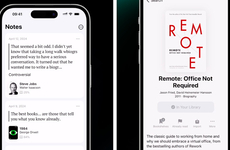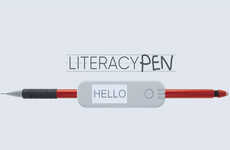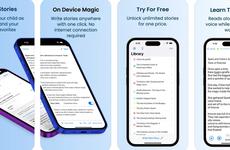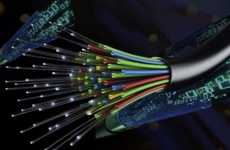
The eGranary Pocket Library Provides Access to Information
Alyson Wyers — May 9, 2015 — Social Good
References: indiegogo & fastcoexist
In an effort to bridge the digital divide and help those without access to the Internet gain knowledge, WiderNet created the eGranary Pocket Library. Currently seeking financial contributions on crowdfunding site Indiegogo, the North Carolina-based non-profit developed a microchip library to give anyone all the information.
Designed with remote communities in Africa in mind, the library is intended for individual use and customized to a target audience. For example, WiderNet recently released an ebola pocket library that contained 25,000 resources from songs to academic journal articles. The customized and curated content can be searched and browsed like the web, but it doesn't need to be connected to a network. Users can also add and edit, Wikipedia-style.
Designed with remote communities in Africa in mind, the library is intended for individual use and customized to a target audience. For example, WiderNet recently released an ebola pocket library that contained 25,000 resources from songs to academic journal articles. The customized and curated content can be searched and browsed like the web, but it doesn't need to be connected to a network. Users can also add and edit, Wikipedia-style.
Trend Themes
1. Bridging the Digital Divide - Opportunity for businesses to develop innovative technologies and solutions that provide access to information to those without Internet connectivity.
2. Customized Microchip Libraries - Potential for organizations to create tailored microchip libraries with curated content targeted towards specific user groups or interests.
3. Offline Access to Digital Resources - Disruptive potential for companies to develop offline access solutions that enable individuals to browse and search digital content without requiring an Internet connection.
Industry Implications
1. Non-profit Organizations - Innovative opportunities for non-profit organizations to develop and distribute customized microchip libraries that provide access to information in underserved communities.
2. Information Technology - Potential for IT companies to develop technologies and software solutions enabling customized microchip libraries and offline access to digital resources.
3. Education - Disruptive innovation opportunities for educational institutions to utilize customized microchip libraries as offline educational resources for students in remote or disconnected areas.
2.3
Score
Popularity
Activity
Freshness























